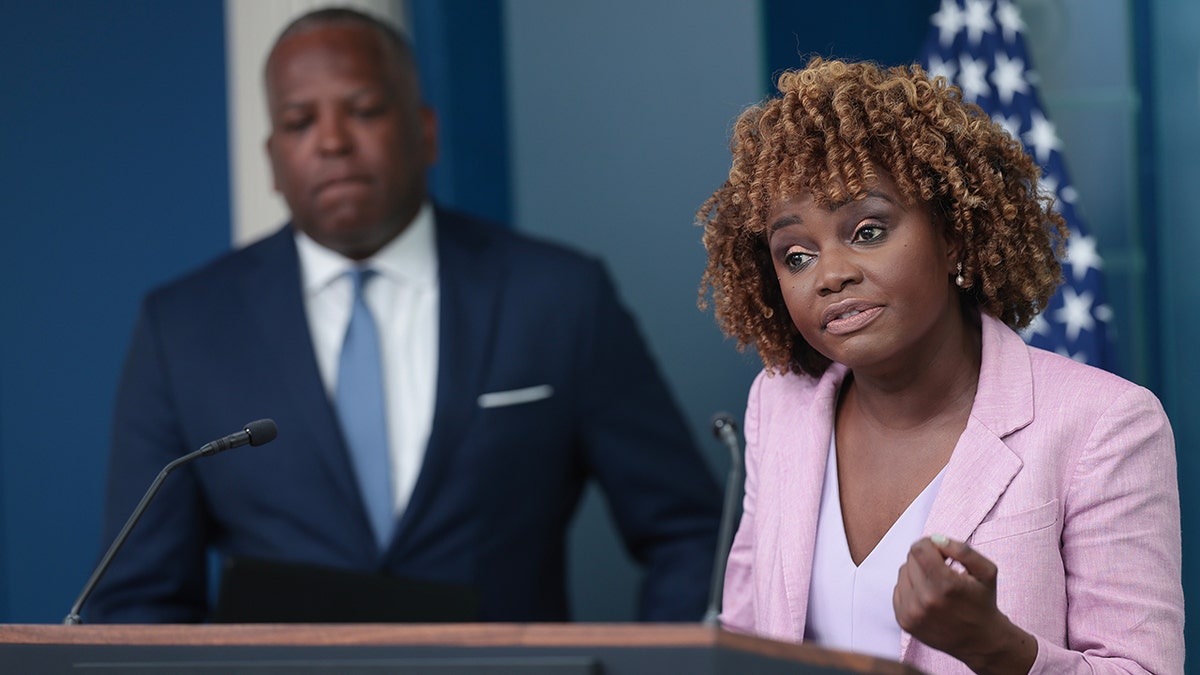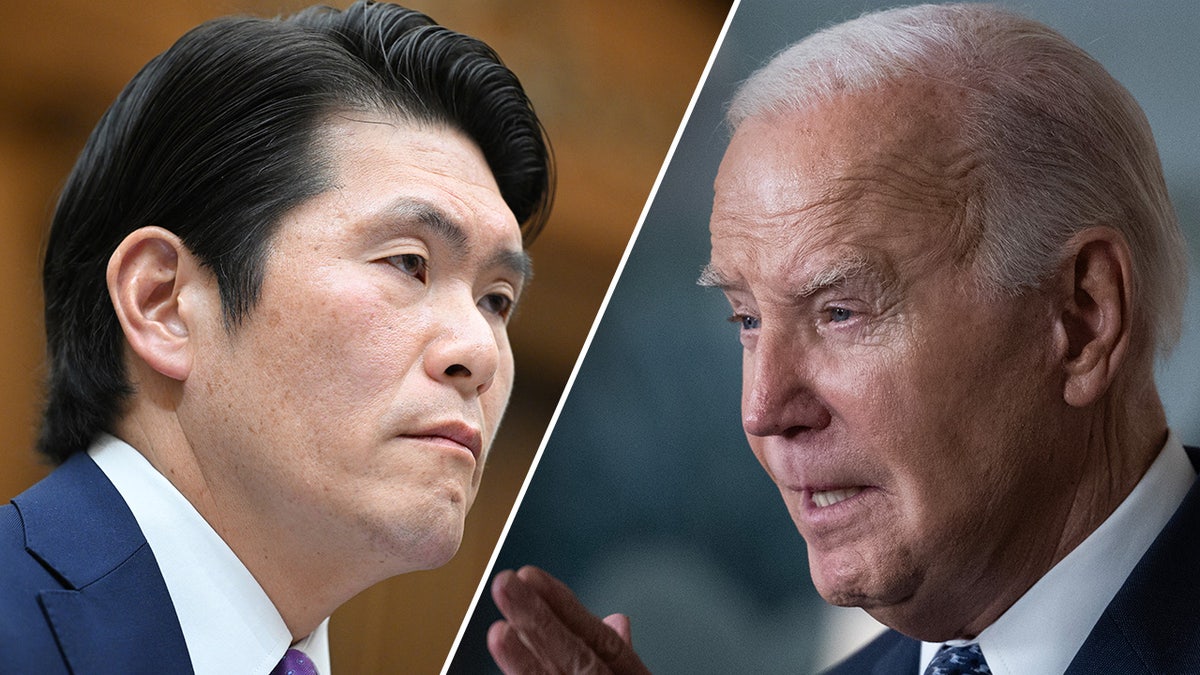White House's Jean-Pierre answers questions on Biden's executive privilege claim
White House press secretary Karine Jean-Pierre spoke to reporters on Thursday, May 16, 2024, about President Biden's assertion of executive privilege over recordings of his interviews with Special Counsel Robert Hur.
The White House on Thursday revealed that President Biden asserted executive privilege over audio and video recordings of his interviews with Special Counsel Robert Hur at the request of Attorney General Merrick Garland.
During a media briefing, White House Press Secretary Karine Jean-Pierre said it was Garland's suggestion that "law enforcement files like these need to be protected."
"And so the president made his determination at the request of the attorney general," Jean-Pierre told reporters. She referred further questions to the White House counsel's office.
The Department of Justice on Thursday informed House Republicans investigating Biden that the executive branch would not turn over subpoenaed materials from Hur's investigation.
BIDEN ASSERTS EXECUTIVE PRIVILEGE OVER RECORDINGS FROM CLASSIFIED DOCUMENTS PROBE

Joe Biden arrives with Merrick Garland, U.S. attorney general, right, during a Medal of Valor ceremony in the East Room of the White House in Washington, D.C., on Wednesday, May 17, 2023. (Al Drago/Bloomberg via Getty Images)
"It is the longstanding position of the executive branch held by administrations of both parties that an official who asserts the President’s claim of executive privilege cannot be prosecuted for criminal contempt of Congress," Associate Attorney General Carlos Uriarte wrote to Reps. Jim Jordan, R-Ohio, and James Comer, R-Ky., chairmen of the Committee on the Judiciary and Committee on Oversight and Accountability, respectively.
Hur led the investigation into Biden's handling of classified documents following his departure as vice president under the Obama administration. Hur announced in February that he would not recommend criminal charges against Biden for possessing classified materials after his vice presidency, citing that Biden is "a sympathetic, well-meaning, elderly man with a poor memory."
BIDEN, NOT SPECIAL COUNSEL HUR, BROUGHT UP SON'S DEATH IN QUESTIONING

Jean-Pierre said that Biden exerted executive privilege over audio and video recordings of his interviews with Special Counsel Robert Hur at Garland's request. (Win McNamee/Getty Images)
Hur wrote in the report that "it would be difficult" to convince a jury to convict Biden of any willful crime, citing his advanced age.
The findings sparked widespread outrage that Biden was effectively deemed too cognitively impaired to be charged with a crime but could serve as president. Trump has meanwhile slammed the disparity in charges as a reflection of a "sick and corrupt, two-tiered system of justice in our country."
JUSTICE DEPARTMENT REBUKED FOR DELAY TACTICS IN BIDEN-HUR TAPES

Special Counsel Robert Hur (left) wrote in his report that Biden is "a sympathetic, well-meaning, elderly man with a poor memory." (Getty Images)
Biden met with Hur for about five hours last year, when he was grilled about his handling of the classified documents.
After Republicans received news that Biden had invoked executive privilege to protect that testimony, House Speaker Mike Johnson, R-La., accused the president of being "afraid" to release the tapes.
"President Biden is apparently afraid for the citizens of this country and everyone to hear those tapes," Johnson said at a news conference. "They obviously confirm what the Special Counsel has found, and would likely cause I suppose, in his estimation, such alarm with the American people that the president is using all of his power to suppress their release."
Asked to respond to the speaker, Jean-Pierre insisted the president had nothing to hide since transcripts of his interview with Hur have been made publicly available for months.
CLICK HERE TO GET THE FOX NEWS APP
"The transcripts are already out there. They've been out there, they have been released to the public," she told reporters. "The public has an opportunity to hear directly from the president and what, or to read what exactly the president said. The attorney general made it clear that law enforcement files like these need to be protected. And that's the determination that was made."
Jean-Pierre deferred to the attorney general and the president when asked why the audio and video must be protected when the transcript has already been released.
Fox News Digital's Emma Colton, David Spunt and Brooke Singman contributed to this update.














































